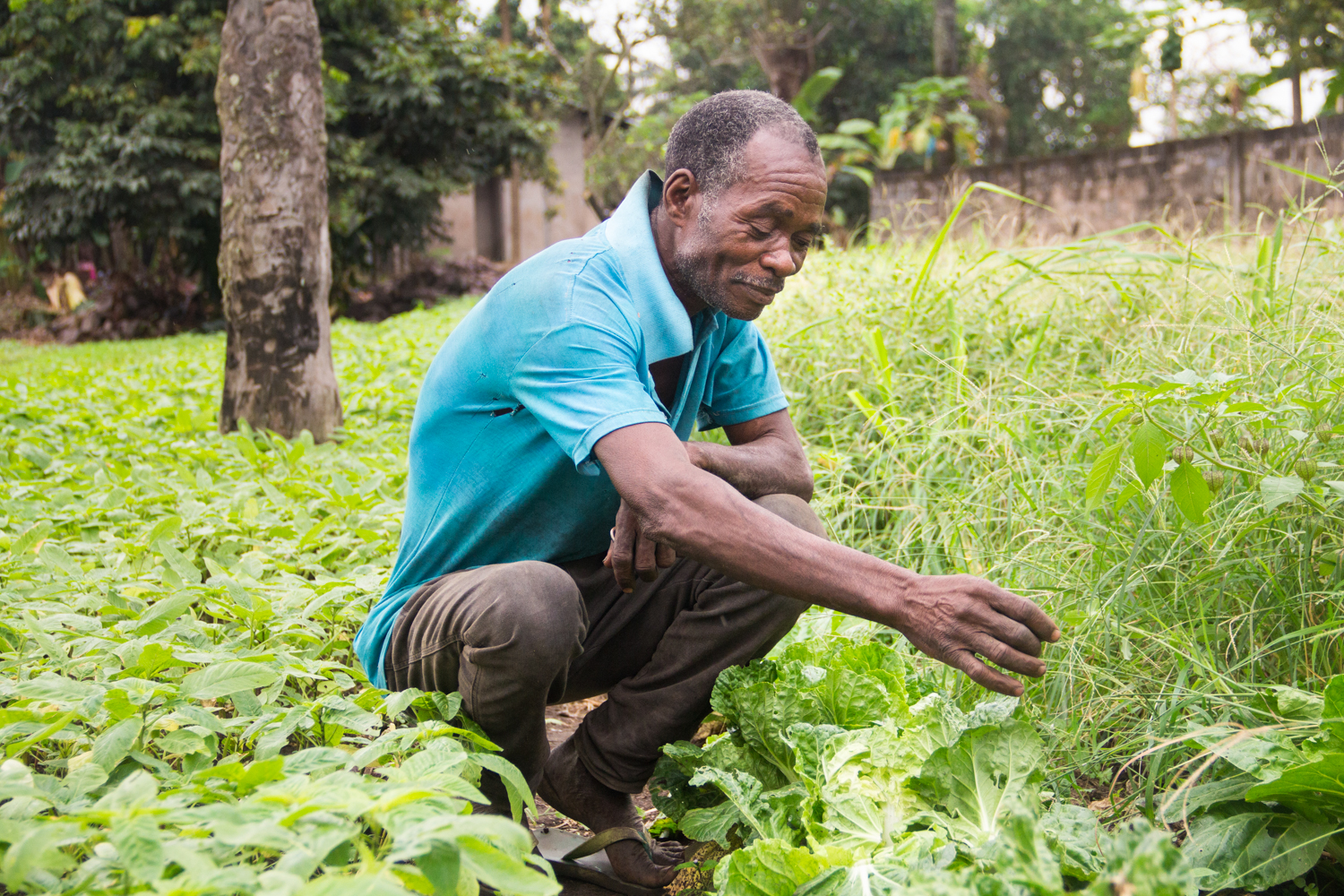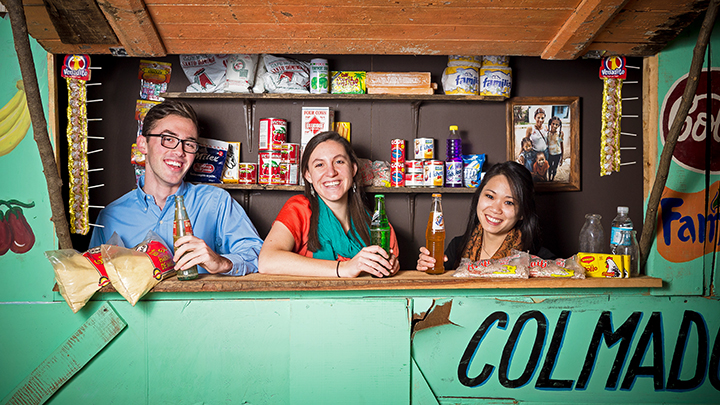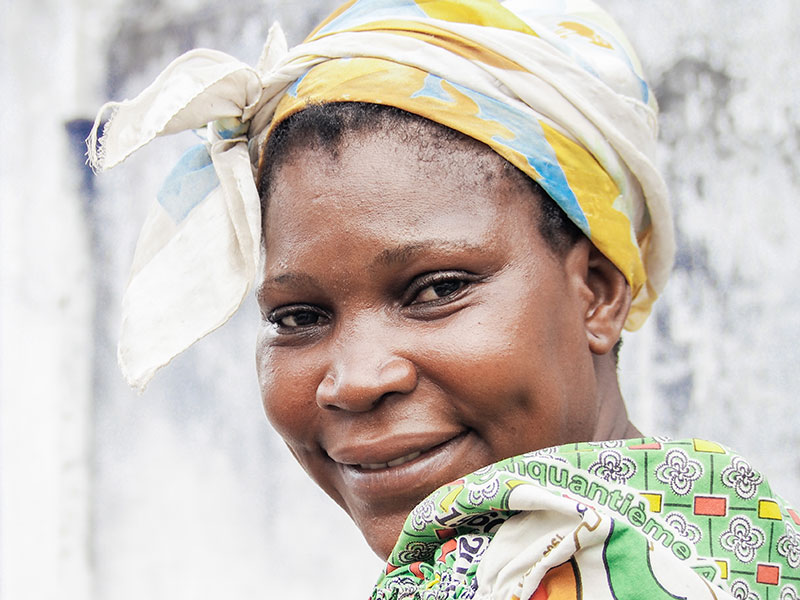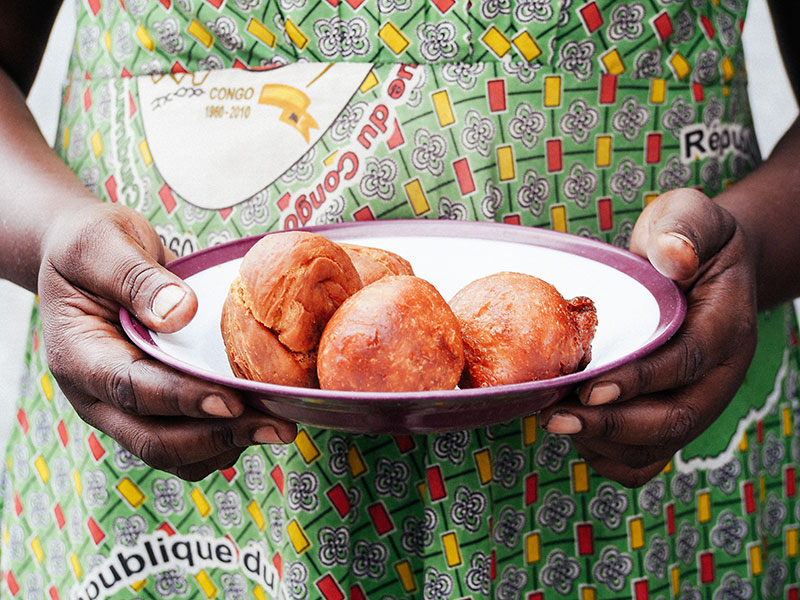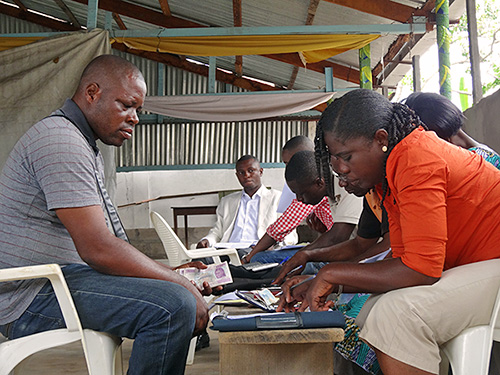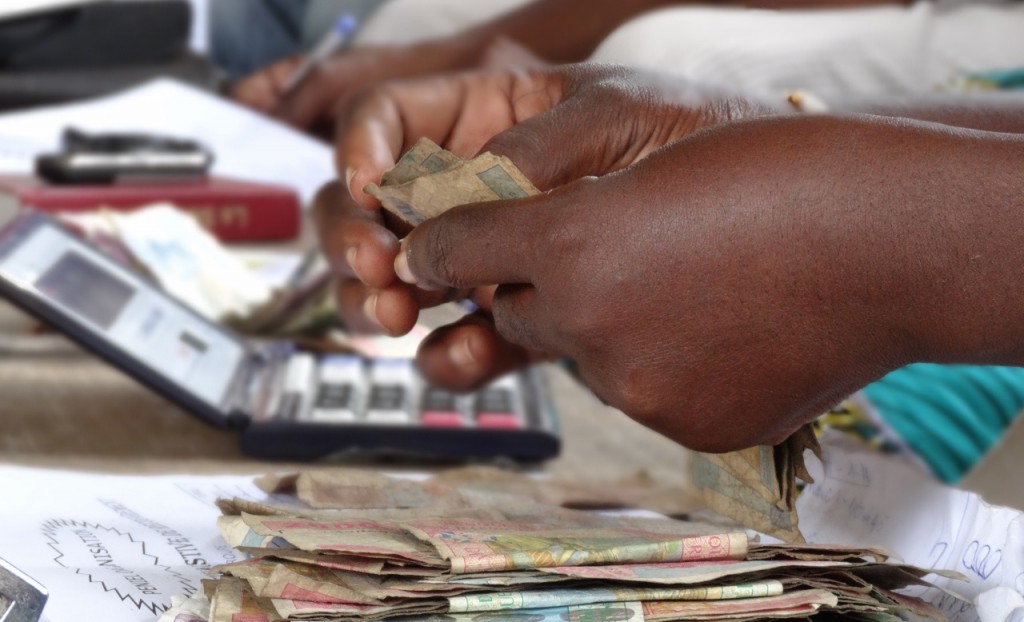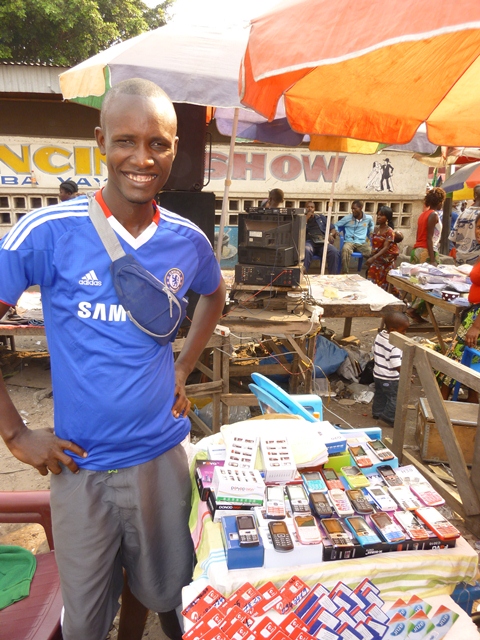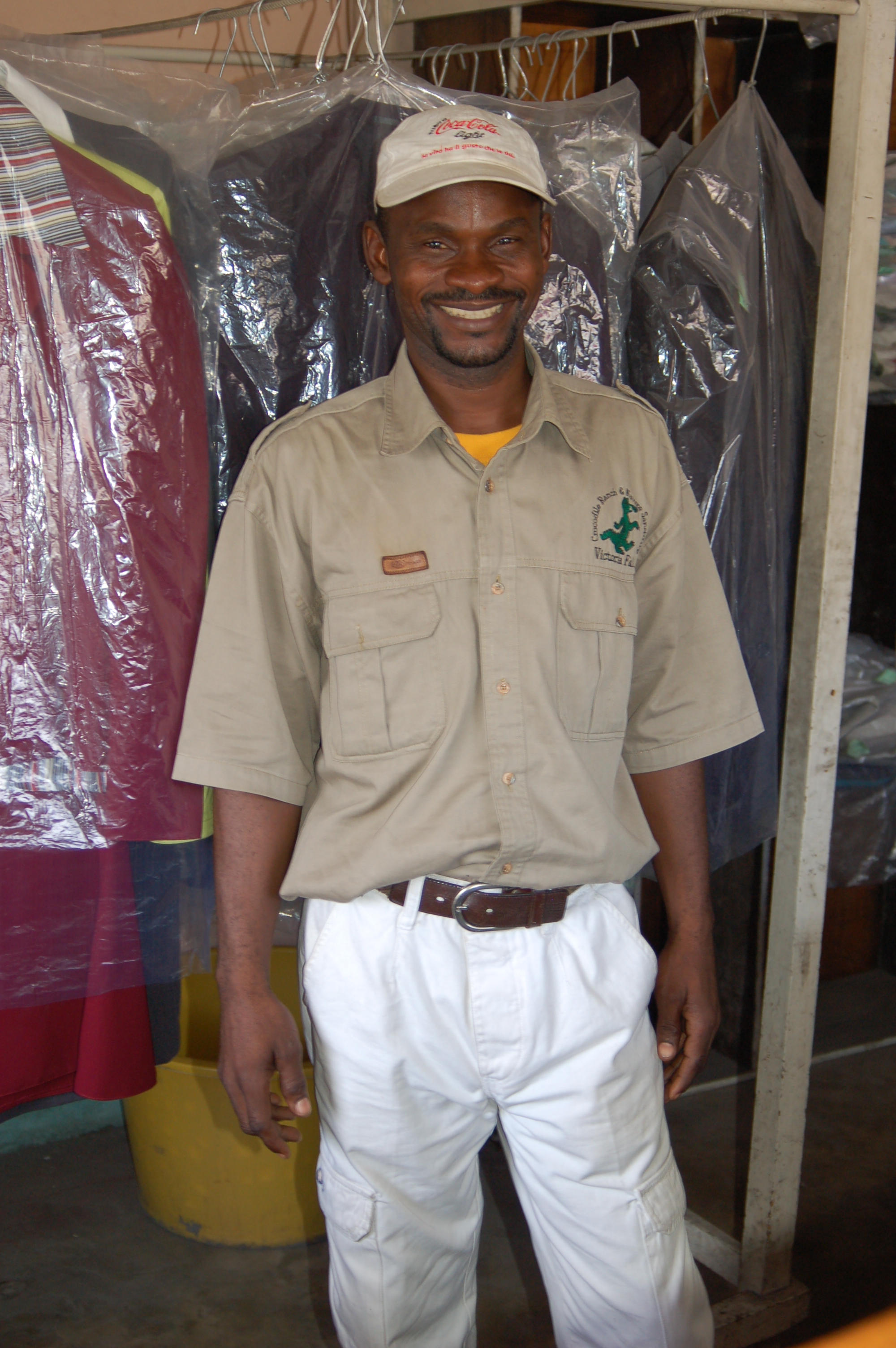“I train lots of people, freely, without asking any money,” Moise said, proudly smiling. “What I have, I give.”
Sitting on white plastic chairs at Moise’s home in the Republic of Congo, I looked out at the fields of newly sprouted cabbages as I mulled over Moise’s words. The grey sky overhead mirrored the heaviness of the conversation as Moise described his considerable challenges—his wife’s deteriorating health, the immense cost of her treatment, losing his loan repayment when a fellow group member left it behind in a taxi. And after this string of hardships, he was still willing to give of his time to train farmers in his community?






